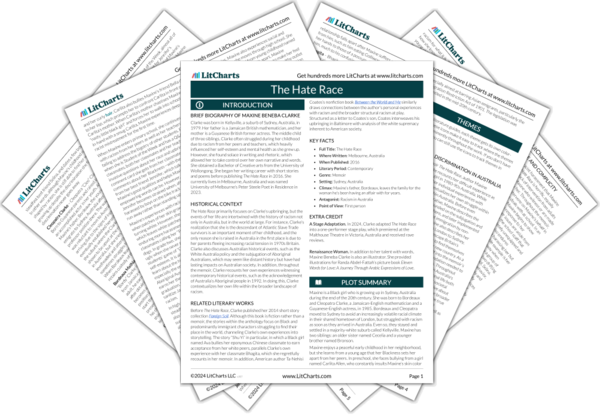This last scene, which ends part one of the book, is a painful reminder of how endemic racism is in Australia. This book should be a source of joy for Maxine given that it’s her award, but its racist writing only serves to alienate and hurt her. It’s no surprise, then, that she reacts with intense anger to the school’s gall in awarding it to her.
